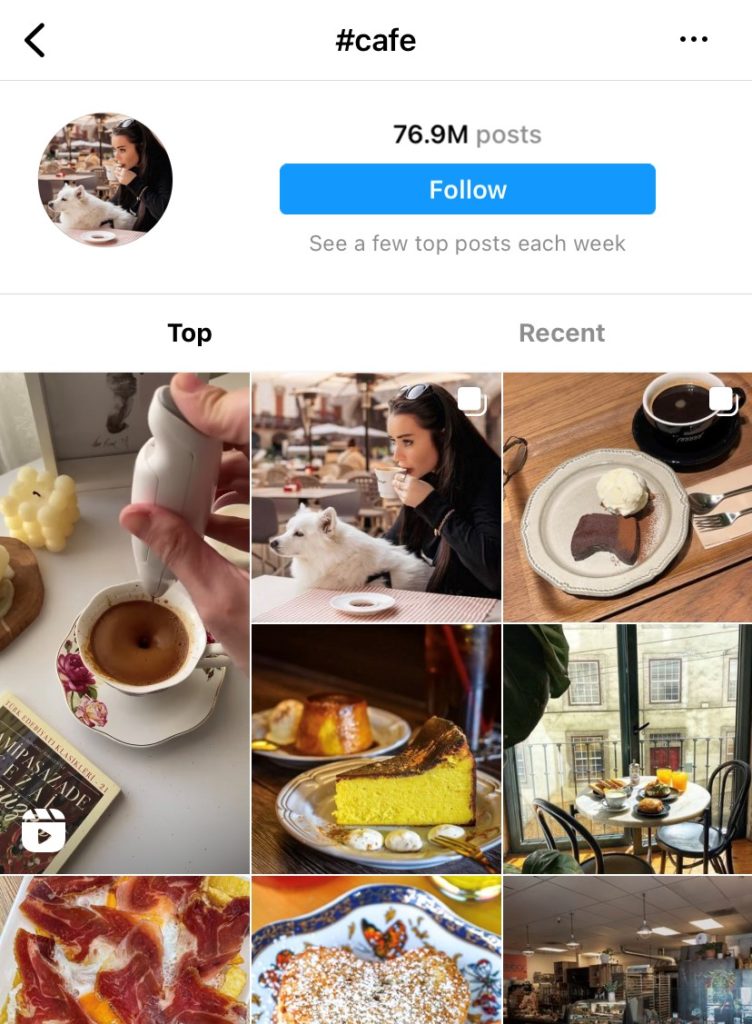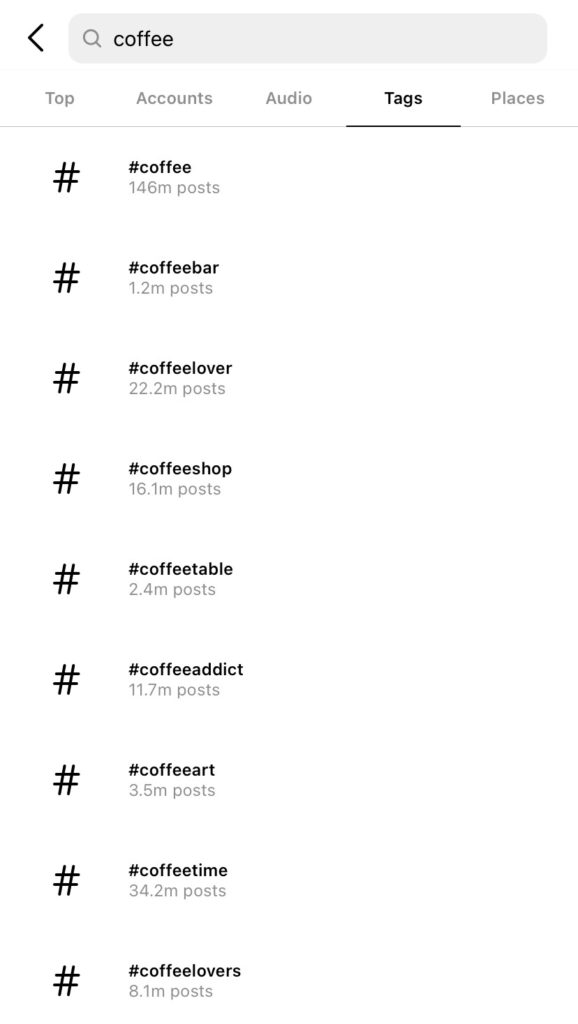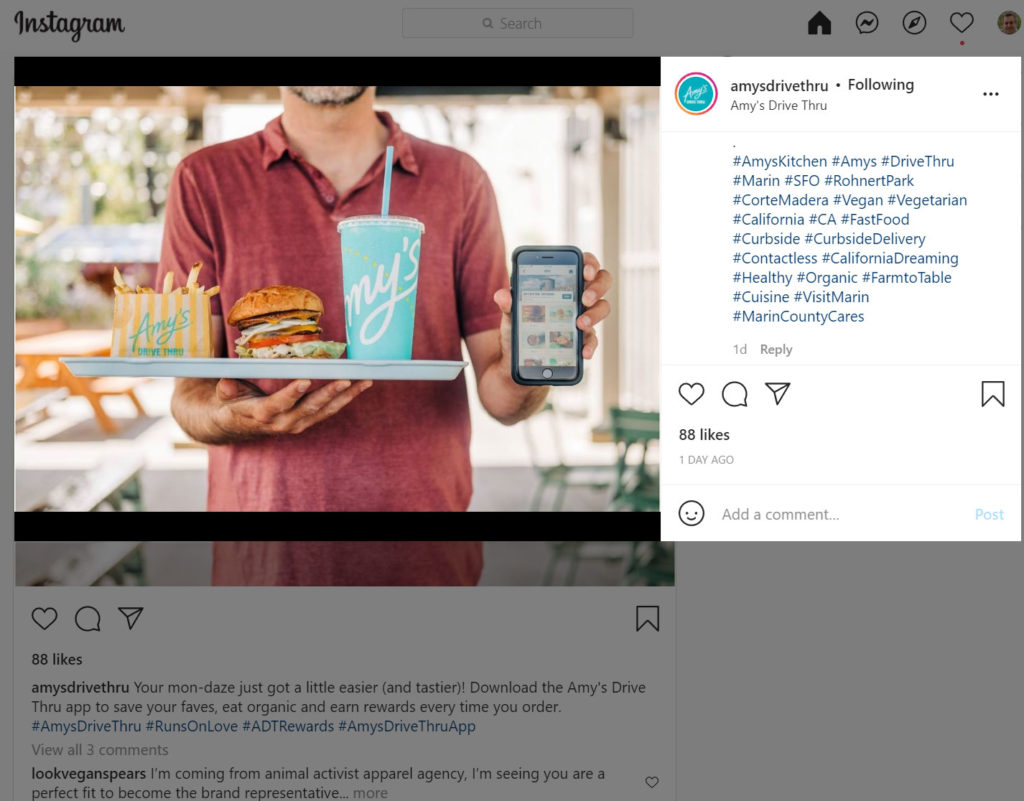Engaging your audience on social media can be a daunting task for small businesses. Besides creating clever marketing, businesses need to research their audience to discover topics that are both interesting and engaging. When creating social media posts on Instagram, those containing a hashtag average 12.6% higher engagement than those without a hashtag. In addition, using certain hashtags can put your post in front of an audience that you are trying to target. So, how can you use hashtag research to find interesting topics to create highly-engaging content for your target market?
Instagram Hashtag Research
Businesses strive to engage potential customers on social media, with Instagram being a key component of social media marketing campaigns. Besides engaging your audience, Instagram is useful for conducting hashtag research that informs your marketing strategy on a broader level. For instance, researching trending topics can inform your overall marketing strategy, and influence of your marketing campaigns. These trending topics can help you generate content for websites, blog posts, and emails. In addition, you can find engaging content for social media platforms besides Instagram, such as Facebook, LinkedIn, or Twitter. Conducting hashtag research can help you reach, engage, and target potential customers at a higher level.
In this article, we’ll show some of the best ways to conduct hashtag research to encourage interaction. Additionally, we will present guidelines for generating engaging Instagram posts that yield results. The following section will look at ways to identify potential influencers that matter for your business and industry. Finally, we will discuss ways to research hashtag competitiveness to generate content of higher relevancy for your audience.
Influencers and Trending Hashtags
Influencer marketing is experiencing a boom, and is a driving force in social media. In fact, estimates suggest influencer marketing is a $13.8 billion industry this year. Over 63% of marketers intending to increase their marketing budget this year. Most importantly, the return-on-investment (ROI) of influencer marketing is approximately $5.20 for every $1 spent, according to Influencer Marketing Hub.

How can you use influencer marketing as part of your hashtag research strategy? Influencers and industry leaders, especially those most relevant to your business, can help you discover up and coming topics that are trending in your industry. Discovering these topics can help your business participate in discussions and generate content on social media channels: providing authority, credibility and relevance to your brand. Whether it being a funny meme, or a temporary interest, it is important to stay up to date on what is changing in your industry, and create engaging content before it is passé. In other words, don’t be late to the party, and get in on the topic while interest is growing.
Competitor Analysis in Hashtag Research
A great way to discover hashtags that are important in your industry is by doing a competitor analysis. While the direct competitors of your business may have a great social media strategy, it is important to realize that many of your local competitors may not have a good strategy at all, which should be evident by their posts and related engagement. Regularly checking in on social media to see what your competitors are doing can help you see trends over time, and which competitors are more successfully growing and engaging their audience. Besides local competitors to your business, a larger search may reveal other brands with successful social media marketing strategies.

As you discover successful brands and marketing campaigns, you can modify your own strategies. Spending some time browsing competitor’s posts can show you what works well, and what does not. While doing competitor research and searching for hashtags, you can follow hashtags that are relevant for your business and industry. This allows you to keep tabs on competitors and see new content that uses that hashtag.
How to Research Related Hashtags
Looking up related hashtags on Instagram is easy. When using the Instagram search bar, a search will show ‘Tags’ as a tab underneath. Clicking this tab (‘Tags’) will show related hashtags to the search, as shown below.

In the above example, a search for ‘#coffee’ reveals related hashtags, such as ‘#coffeebar’ or ‘#coffeeshop’, as well as others like ‘#coffeeart’ or ‘#coffeelovers’. This is a great way to find related hashtags, along with their frequency of use. Depending on the nature of the business and industry, some of the suggestions may be more relevant than others. For instance, a business in the furniture industry might be more interested in the ‘#coffeetable’ hashtag above.
Besides looking up related hashtags to a search, you can find related hashtags by browsing posts on Instagram. When looking through posts of interest, you can follow or save some of the hashtags found in the post description (and post comments) as related keywords of interest for future use.
Using Branded Hashtags, Product Hashtags, and Brand Mentions
Custom-branded hashtags (or product hashtags) can create good branding for a business or product. While an audience for these hashtags does not exist until their creation, they can serve as a way for a business to claim and brand a particular hashtag for others to follow. Businesses and their followers can then use these custom hashtags in every relevant post, and encourage their use as shown in the post below.

In the above example, an Instagram influencer mentioned a fellow brand (@gopuff) and also used their custom-branded hashtag (#GopuffChicago). This provides a means for others to both follow the brand (@gopuff), as well as follow posts tagged with #GopuffChicago. This branded hashtag helps those in the Chicago area follow posts that are more relevant to their local area.
Competitiveness, Popularity, and Relevancy
Similar to keyword research, hashtag research involves searching and sorting phrases that achieve a balance of popularity and relevancy for the post, and brand. Using a small handful of relevant hashtags is effective, as is posting additional hashtags in the post’s first comment. The following example shows how to limit hashtags in the post (to not look like spam). Additionally, the comments section is used to target more hashtags not used in the original post.

Using Popular Hashtags
Using hashtags with millions of posts is more likely to reach a large audience. However, a post can become buried in the large amount of other posts using that same hashtag. Those following the hashtag (with millions of posts) are therefore less likely to see your post. Alternatively, the use of hashtags with smaller numbers of posts (or followers) is more likely to reach that smaller audience. So, how does one go about choosing hashtags for their posts? In one word, relevancy.
Content (Relevancy) Is King
When posting content meant to engage an audience, marketers should always focus on the relevancy of their content. As stated, this involves choosing hashtags that balance popularity and relevancy, so that posts reach an audience that matters. Often, using highly-used hashtags will result in lots of spam in the comments, as the audience is too broad. Using smaller-audience, more relevant keywords that corelate to the content are more likely to engage and attract customers to a business.
Summary
When conducting hashtag research, marketers must use discretion. When choosing the most relevant keywords (and hashtags) for their brand, marketers determine the content (and reach) of their posts. Popular hashtags lend more exposure, but are often seen by a less-relevant audience than smaller-volume hashtags of a niche audience. While the latter is more relevant to the content and industry, a balance must be struck between reach and relevancy.
By following your competitors, discovering interesting hashtags that are relevant to your business, and testing ideas in the Instagram search bar, you can find trends in your industry that generate interest and engagement for your business. If you can share any of your successes or failures on Instagram, or any experiences from your own hashtag research, we would love to hear from you in the comments below. If you have questions on hashtag research or social media marketing, please reach out to the experts at CueCamp today.
Written by: Matthew Sharritt, Ph.D. (Founder, CueCamp)


